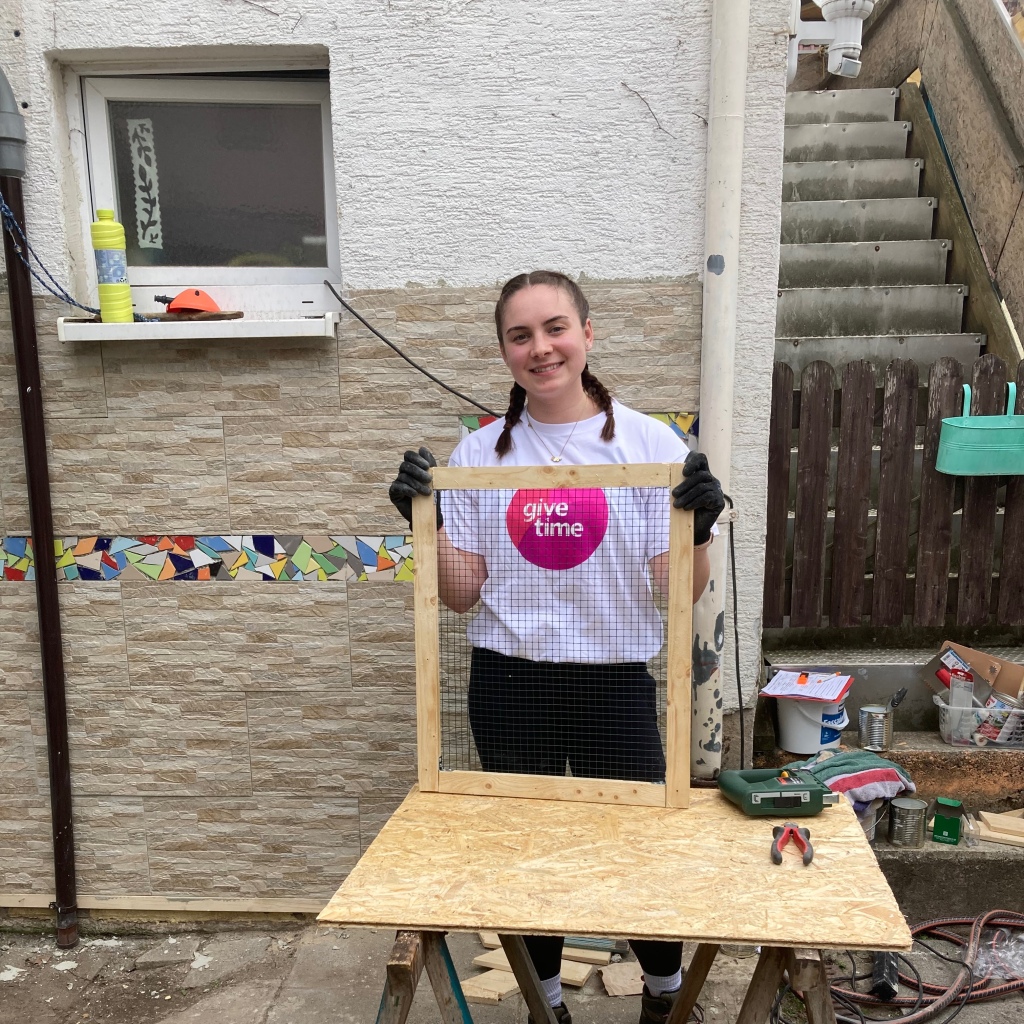By Tori Barlow
Here is a simple, bullet-pointed list of some tips to help your year abroad in Germany get off to a smooth start!

- Language and Culture Immersion: Dive In Early
Prepare for your German adventure by immersing yourself in the language and culture before you travel here. Beyond the basics, consider watching popular German TV shows like “Dark”, “Tatortreiniger”, or “Türkisch für Anfänger” with subtitles, or consider trying out different genres of German music.. you never know what you might find! To keep up to date with nationwide events, celebrations, or rail strikes, make sure to read the German news sources, such as Der Spiegel or Die Zeit, which will not only improve your language skills but will also allow you to make informed decisions about your travel plans. (If there are any Deutsche Bahn rail strikes, NOTHING will run, so if you have to travel on these days I would recommend taking a FlixBus if you can). This technique works excellently for learning the language and making this country feel like home. It will also make your environment seem less intimidating or overwhelming if you are at all nervous or anxious about moving abroad on your own.
- Personal Space and Formality: Respectful Connections
Germans value personal space and maintain formality, especially in initial interactions. When addressing individuals, particularly in professional settings, use appropriate titles like Herr (Mr.) or Frau (Ms./Mrs.). As relationships develop, the formality may ease, but initiating connections with respect sets a positive tone for future interactions. This is particularly evident when you address someone you don’t know for the first time. You must always use the formal version of ‘du’ which is ‘Sie’ when you first address a new person, or someone more senior than yourself. Most Germans will understand if you make this mistake and use ‘du’, but don’t be surprised if they try to correct you. For example, you would say “Können Sie mir helfen?” instead of “Kannst du mir helfen?” if you were asking someone if they can help you.
Further, it is custom in the morning to greet people with “Morgen!”, even if you don’t know them. Then, throughout the day if you pass someone such as your neighbour, it is polite to say “Hallo”. If you do not do this, the Germans may think you are rude.
- Punctuality Matters: The German Time Precision
Punctuality is more than a virtue in Germany; it’s a cultural expectation. Arriving on time demonstrates respect and professionalism. Set the tone for positive interactions by planning your schedule carefully, whether attending a social gathering or a professional meeting. The German commitment to punctuality extends to public transport, so embracing this cultural norm ensures smooth and stress-free travel. That being said, public transport services can be early as much as they can be late, so I would recommend arriving to your bus stop/ train station at least 5mins before your departure. They will not wait for you, even if you are on time but they are early! Learn how to use apps like Deutsche Bahn’s Navigator for schedules and ticket information. Efficiently navigating public transport not only enhances your independence but also allows you to explore the diverse corners of Germany seamlessly. I recommend for the first time you travel here or need to use German public transport, to have at least one person with you. If you will be doing all of this alone, make sure to do your research and have back-up travel routes!
- Sunday Silence: The Day of Rest
Sundays in Germany offer a stark contrast to the lively scenes in the UK. Most establishments, including supermarkets and shops, remain closed, encouraging a day of rest and reflection. An easy way to embrace this cultural practice is by planning your weekly shopping ahead and taking your Sunday to explore local scenery with friends. There is definitely a hike to be found almost anywhere in this country.

- Communal Living: Searching for Accommodation
This will vary depending on whether you have access to university accommodation or not. As a student or young adult, most people here find their flats using this website: WG-Gesucht.de . Unlike in England where you often have to search for your flat/house almost a year in advance, here the changeover is much faster. Germans will usually advertise properties a month or so in advance, so my advice would be to monitor what comes up at least a few months in advance, and when you see something promising, act quickly! From my experience, it is a very competitive market. It is also worth noting that subletting is extremely common here unlike in England, even subletting a sublet… so make sure you know who and where your money is going each month to avoid any complications! Subletting can also be great, because all the responsibility for your utilities falls on the main tenant, so usually you pay one all-inclusive bill each month, instead of rent per third and bills every month 😊 .
- Money Money Money: The Cost of Living
From my personal experience, I would say the cost of living in Germany is higher than the UK, but a German salary will compensate for this… so perhaps it balances out? I think it is important to remember this topic is very subjective, but still vital to consider if you are considering moving abroad. EU imports are obviously cheaper than in the UK, but non-EU imports are more expensive than in the UK. For example, your next pair of trainers might be cheaper to buy at home depending on the brand.
Here is some information I have found about comparing the cost of living in different countries. According to Numbeo, the cost of living in Germany is 21% cheaper than in the UK. However, the cost of living in Sheffield is lower than the UK average.
Here is a comparison of the prices of some common items in Sheffield and Germany: (please note that these figures could be completely inaccurate and this just serves as a general guide)
| Item | Sheffield | Germany |
| Meal at McDonald’s (or Equivalent Combo Meal) | 5.00£ (5.77€) | 7.83£ (9.00€) |
| Domestic Beer (0.5 liter draught) | 3.00£ (3.46€) | 3.48£ (4.00€) |
| Imported Beer (0.33 liter bottle) | 3.50£ (4.04€) | 3.13£ (3.60€) |
| Cappuccino (regular) | 2.50£ (2.89€) | 2.80£ (3.22€) |
| Coke/Pepsi (0.33 liter bottle) | 1.00£ (1.15€) | 2.31£ (2.65€) |
| Water (0.33 liter bottle) | 0.80£ (0.92€) | 2.06£ (2.37€) |
| Milk (regular), (1 gallon) | 1.00£ (1.15€) | 3.57£ (4.10€) |
| Loaf of Fresh White Bread (1 lb) | 0.90£ (1.04€) | 1.50£ (1.72€) |
| Rice (white), (1 lb) | 0.50£ (0.58€) | 0.97£ (1.11€) |
| Eggs (regular) (12) | 1.80£ (2.08€) | 2.65£ (3.05€) |
| Local Cheese (1 lb) | 2.50£ (2.89€) | 4.82£ (5.54€) |
| Chicken Fillets (1 lb) | 3.00£ (3.46€) | 4.92£ (5.66€) |
| Apples (1 lb) | 0.80£ (0.92€) | 0.93£ (1.07€) |
| Oranges (1 lb) | 0.80£ (0.92€) | 0.82£ (0.94€) |
| Potato (1 lb) | 0.50£ (0.58€) | 0.60£ (0.69€) |
| Onion (1 lb) | 0.50£ (0.58€) | 0.59£ (0.68€) |
| Water (1.5 liter bottle) | 0.80£ (0.92€) | 0.53£ (0.61€) |
| Bottle of Wine (Mid-Range) | 7.00£ (8.08€) | 4.34£ (4.99€) |
| One-way Ticket (Local Transport) | 2.50£ (2.89€) | 2.61£ (3.00€) |
| Taxi Start (Normal Tariff) | 3.00£ (3.46€) | 3.13£ (3.60€) |
| Taxi 1 mile (Normal Tariff) | 2.00£ (2.31€) | 2.80£ (3.22€) |
| Totals | 43.40£ (50.13€) Sheffield | 56.12£ (64.82€) Germany |

- Hey Big Spender: Managing Your Money
Taking a year abroad is a great opportunity but it can also be expensive – especially with upfront costs. As soon as you know you will go abroad, I recommend to start saving as much money as reasonably possible. Do not exhaust yourself trying to manage every penny, but consider how you spend your money, and start to think about how you could earn more. Some easy things I did include:
- Set up a new flexible savings account with a high interest rate. Right now, Chase by JP Morgen has 4.1% AER.
- Enable ‘round ups’ on all your transactions. This means that whatever you spend, your bank will round this number up to the next pound and put those pennies in a pot for you to save. I did this again with Chase, which put the pennies directly into my savers account, with an additional interest rate of 5% AER.
- Keeping rent money in a flexible savings account so that it can accumulate some pennies while you aren’t needing it. Make sure to remove the rent in time for your payments thought o avoid complications with your landlords!
- Sell old clothes or belongings you wouldn’t take abroad on Vinted. This is also useful for general consumer management, because if you wouldn’t take these items abroad for a year, do you really need them? You can also link your Vinted to your chosen bank account, so moving the money into your savings is even easier.
- Look into what financial support you can access through the university. The university can help you with scholarships, bursaries, and the Turing Scheme, so it is a good idea to attend any talks or help sessions, and know how much, if anything, you could be entitled to.
- Reconsider your expenses and try to make them cheaper. This includes your phone bill, streaming or delivery services, contact lenses, try to get creative with it.
- Create a spending budget, and anything you don’t spend each month move into these savings. I believe the university’s website still has a money planner or calculator you can use to help you.
- Get a part-time job or pick up freelance work. Check out the university’s careers service for flexible opportunities, and I also recommend signing up to a hospitality company such as Arc or Constellation who offer casual shifts around local areas.
Moreover, when you arrive in Germany: while card payments are widely accepted, having cash on hand remains practical. Smaller establishments, local markets, or street vendors may prefer cash transactions, so make sure you always have emergency cash with you at all times, you never know when you may need it!
As for card payments, I recommend using Revolut for your day-to-day spending, and PayPal is also common here for people to send money to one another. It may be better to set up a new PayPal in German to avoid exchange fees, and for this you will need a new email, and potentially a German phone number. I found having an email such as username_de@email.com really useful for managing all the admin in general, and you can find cheap prepaid sims here to get a phone number, which you can top up as you need.

- Biking Culture and The Green Revolution
Germany’s commitment to environmental sustainability is reflected in its intricate recycling system. Take recycling seriously by familiarising yourself with the waste separation bins in your local area (or when you plan to move to). For example, the “Gelbe Tonne” (yellow bin) is for packaging materials and so on. Pfand is a deposit system for plastic bottles and aluminium drink cans in Germany. You pay extra money when you buy a drink (around 25 cents) and you can get it back when you return the empty container to the stations you can find at all supermarkets. You will sometimes see homeless people collecting these bottles, so that they can buy themselves food with the ‘voucher’ you are given after donating them at the shop.
Germany’s commitment to sustainability also extends to its biking culture. Like in Sheffield, I have seen locals cycle in ALL weather conditions. Plus, the roads here are much more adapted for bikes than they are in the UK so you could argue it is safer, however, make sure to allow time to familiarise yourself with cycling on the other side of the road to avoid any accidents! You could even consider joining local biking groups or using bike-sharing programs to connect with the community, offering a more authentic perspective on German urban life.









